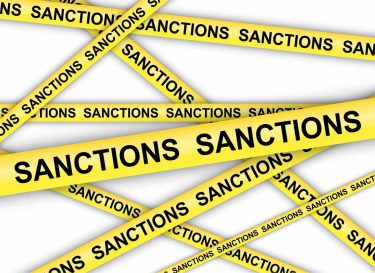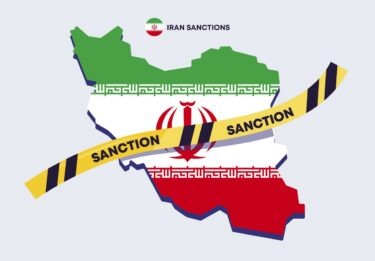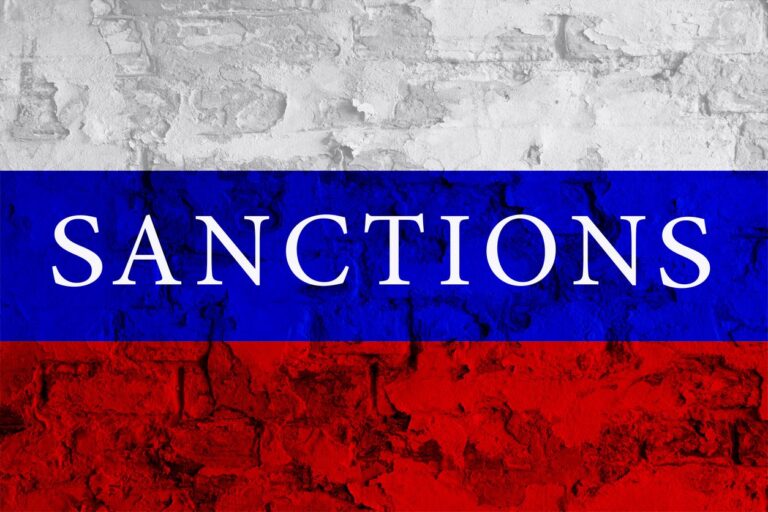Last year, Congress amended the whistleblower rewards provision of the Anti-Money Laundering Act (AMLA) to require the Department of the Treasury to pay an award to a whistleblower for a voluntary disclosure of original information about sanctions evasion that results in penalties above $1 million.
The AMLA whistleblower reward law incentivizes whistleblowers to disclose violations of the International Emergency Economic Powers Act, sections 5 and 12 of the Trading With the Enemy Act, or the Foreign Narcotics Kingpin Designation Act.
A sanctions evasion whistleblower can report violations of U.S. sanctions anonymously (if represented by an attorney) and obtain an award of 10% to 30% of the collected monetary sanctions.
The AMLA whistleblower reward program is modeled on the highly successful SEC whistleblower program. The monetary sanctions collected in any judicial or administrative action that qualify for an AMLA whistleblower award include penalties, disgorgement, and interest ordered to be paid, but excludes (i) forfeiture; (ii) restitution; and (iii) any victim compensation payment.
Recent developments in sanctions enforcement provide a strong incentive for whistleblowers to identify and report sanctions violations, including an increase in sanctions enforcement resources and the imposition of stiff penalties in sanctions enforcement matters.
Call our sanctions evasion whistleblower lawyers at 202-930-5901 or contact us to find out if you are eligible for an AML whistleblower award. A delay in reporting violations of US sanctions can potentially disqualify a whistleblower from recovering an award or can lower a whistleblower award, so call us today for a free consultation.





DOJ Prioritizing Sanctions Evasion

On September 11, 2023, the DOJ’s National Security Division announced two key appointments to lead the Division’s corporate enforcement program — Ian C. Richardson was named the first Chief Counsel for Corporate Enforcement, and Christian J. Nauvel was named as Deputy Chief Counsel for Corporate Enforcement. The National Security Division intends to add more than 25 prosecutors to investigate and prosecute sanctions evasion, export control violations, and similar economic crimes.
Recent enforcement matters suggest that DOJ and OFAC are taking a robust approach to deterring corporate criminal misconduct that implicates U.S. national security.
September 2023 Criminal Enforcement Action for Illicit Sale of Iranian Oil

Pursuant to a deferred prosecution agreement with the DOJ, Empire Navigation must cooperate fully with any domestic or foreign law enforcement and regulatory authorities in any investigation of the company, implement a compliance program designed to prevent and detect violations of U.S. sanctions laws and regulations, submit quarterly reports detailing the sanctions and compliance improvements, and promptly disclose any violation of U.S. sanctions laws or regulations by the company.
OFAC Sanctions Companies Involved in Production, Sale, and Shipment of Iranian Petrochemicals
In February 2023, OFAC sanctioned nine entities that played a critical role in the production, sale, and shipment of hundreds of millions of dollars’ worth of Iranian petrochemicals and petroleum to buyers in Asia. This action was taken pursuant to Executive Order 13846, which re-imposed all sanctions lifted or waived in connection with the 2015 Joint Comprehensive Plan of Action.
This enforcement action requires that all property and interests in property of the six targeted Iran-based petrochemical manufacturers and three firms in Malaysia and Singapore involved in facilitating the sale and shipment of petroleum and petrochemicals on behalf of Triliance Petrochemical Co. Ltd. must be blocked and reported to OFAC.
$629 Million Penalty for Selling Cigarettes to North Korea
In April 2023, British American Tobacco (BAT) agreed to pay more than $635 million to resolve charges that it conspired to violate U.S. sanctions by selling cigarettes to North Korea. BAT and its subsidiary engaged in a scheme to circumvent U.S. sanctions and sell tobacco products to North Korea by running payments for the tobacco sold to North Korean entities through a third-party company, resulting in approximately $418 million of U.S. dollar cash and correspondent banking transactions from North Korea to the third-party company in Singapore.
North Korean purchasers used front companies so that U.S. banks would not know about the connection to North Korea. Pursuant to a deferred prosecution agreement and plea agreement, BAT and its affiliate paid a total of $629 million in penalties and fines.
$777 Million Penalty for Paying Terrorist Organizations for Permission to Operate a Cement Plant
In October 2022, French construction company LaFarge, S.A. pled guilty and agreed to pay $777.8 million to resolve a U.S. federal criminal charge related to the company’s payments to ISIS and the al-Nusrah Front for permission to operate a cement plant in Syria. Lafarge S.A. and Lafarge Cement Syria (LCS), a Lafarge S.A. affiliate headquartered in Damascus, schemed to pay nearly six million dollars in illicit payments to ISIS and ANF in exchange for permission to operate a cement plant in Syria, which enabled the companies to obtain approximately $70.3 million in revenue.
The companies intentionally structured their agreements with ISIS to compensate the terrorist organization based on the amount of cement that LCS was able to sell – effectively, a revenue-sharing agreement – to incentivize the terrorist group to act in LCS’s economic interest. To settle criminal charges of conspiring to provide material support and resources to foreign terrorist organizations, Lafarge and LCS entities agreed to pay financial penalties, including criminal fines and forfeiture, totaling $777.78 million.
Sanctions Evasion Whistleblower Rewards and Protections
Guide to Whistleblower Rewards for Disclosing Sanctions Violations to OFAC Whistleblower Reward Program
Whistleblowers that disclose violations of U.S. sanctions serve the public interest by enhancing the government’s ability to detect and combat sanctions evasion, which in turn strengthens U.S. national security.
If you have original information about sanctions violations, contact our whistleblower lawyers for a confidential consultation. We can help you report anonymously and qualify for a whistleblower award.








